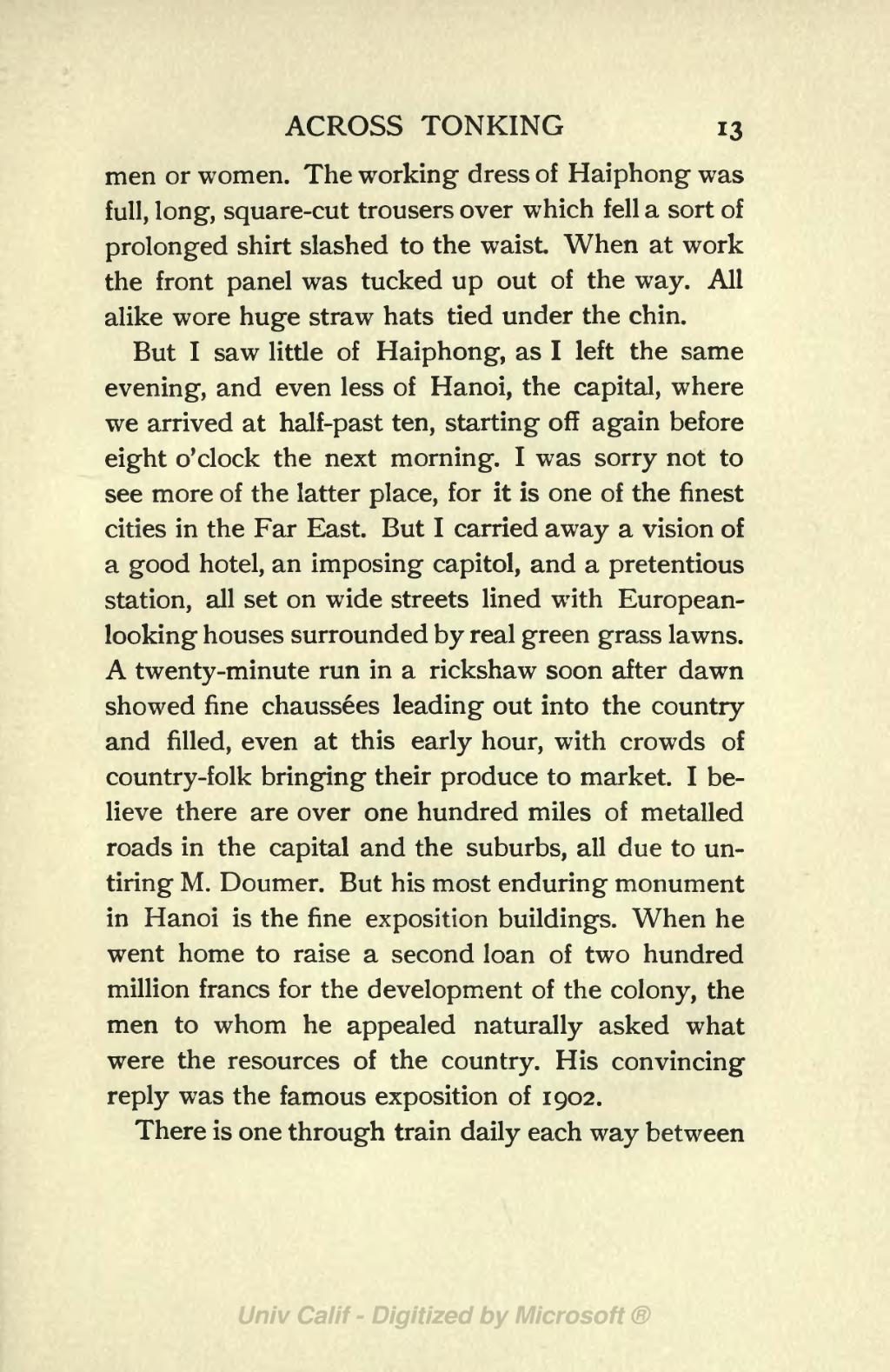men or women. The working dress of Haiphong was full, long, square-cut trousers over which fell a sort of prolonged shirt slashed to the waist. When at work the front panel was tucked up out of the way. All alike wore huge straw hats tied under the chin.
But I saw little of Haiphong, as I left the same evening, and even less of Hanoi, the capital, where we arrived at half-past ten, starting off again before eight o'clock the next morning. I was sorry not to see more of the latter place, for it is one of the finest cities in the Far East. But I carried away a vision of a good hotel, an imposing capitol, and a pretentious station, all set on wide streets lined with European-looking houses surrounded by real green grass lawns. A twenty-minute run in a rickshaw soon after dawn showed fine chaussées leading out into the country and filled, even at this early hour, with crowds of country-folk bringing their produce to market. I believe there are over one hundred miles of metalled roads in the capital and the suburbs, all due to untiring M. Doumer. But his most enduring monument in Hanoi is the fine exposition buildings. When he went home to raise a second loan of two hundred million francs for the development of the colony, the men to whom he appealed naturally asked what were the resources of the country. His convincing reply was the famous exposition of 1902.
There is one through train daily each way between
